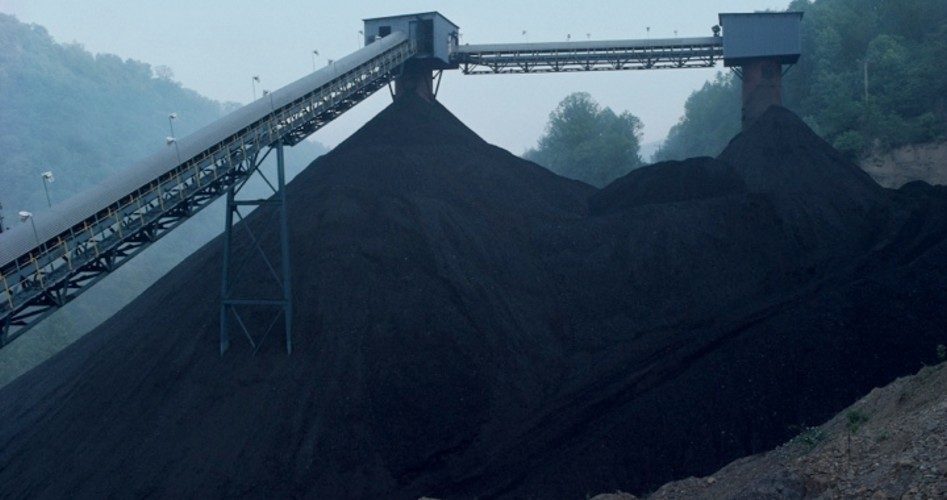
Underscoring the inimical aftereffects of President Obama’s “war on coal,” Alpha Natural Resources announced September 18 it will be shuttering eight coal mines in Virginia, Pennsylvania, and West Virginia, while laying off some 1,200 workers. Expounding on the decision, Alpha CEO and chairman Kevin Crutchfield asserted, “With fundamental changes taking place in our business, we’re taking decisive actions that set the table for Alpha to compete successfully as a leader in the global coal markets for years to come.”
These “fundamental changes” in part highlight the Environmental Protection Agency’s (EPA) onerous new regulations on coal, which have already led to numerous plant and mine closures across the country. “Cheap natural gas prices and a regulatory regime that is overtly designed to constrain the use of coal has created a double edged sword for us,” Crutchfield told Reuters in a recent interview.
Specifically relating to Alpha’s eight mine closures, about 400 positions were terminated, mostly in key election battleground states. In addition, the company announced a complete overhaul of its operations to take place through 2013 that will expel some 1,200 of the company’s 13,100 jobs nationwide.
The most recent development was the fourth round of Alpha layoffs in West Virginia this year, with the first three terminating a total of about 700 jobs, according to spokeswoman Samantha Davison. As a whole, the state lost 1,400 coal mining jobs in the first half of the year (six percent of the total), according to data from the U.S. Mine Safety and Health Administration, with hundreds more jobs already in the works to be cut.
Alpha Natural Resources, the second-largest U.S. coal producer, plans to ramp up its pursuit of metallurgical coal, which is used to make steel and generally caters to the export markets. Crutchfield added that the company will consolidate its U.S. market and begin to expand its focus on the global consumer market.
“We’re taking a long-term view of the thermal coal market, and we believe there are solid opportunities for diversified suppliers like Alpha to produce and sell thermal coal profitably into a smaller domestic market and to customers in new markets overseas,” Crutchfield affirmed. “At the same time we have a big opportunity to advance Alpha’s position as a premier supplier of metallurgical coal. Forecasts point to more than 100 million tons of increased seaborne metallurgical coal demand by the end of this decade, and persistent structural supply limitations exist on sources of high-quality metallurgical coal. We intend to participate meaningfully in the market upside with costs that are globally competitive.”
The week of September 17 the House plans to vote on a Stop the War on Coal bill designed to halt EPA regulations that are plaguing the industry, an effort Republicans hope will garner votes in key swing states. Responding to Alpha’s announcement, presidential candidate Mitt Romney highlighted Obama’s environmental policies as a direct catalyst to the mine closures, and consequently more than a thousand job layoffs.
“For four years, President Obama has waged a war on coal that has devastated the middle class and American workers,” affirmed Romney campaign spokesman Ryan Williams. “Today’s news that the president’s policies are killing another 1,200 jobs in states like Virginia, West Virginia and Pennsylvania is just the latest evidence President Obama hasn’t delivered for middle-class families.”
A chief component of the EPA’s batch of new regulations is the mercury air toxins rule, also called the Utility MACT rule, which would mandate mercury emission limits on all coal-fired power plants. Among other rules, the EPA has also proposed first-ever carbon emission standards for future coal plant construction.
The Utility MACT rule, which would force many coal-plant owners to install expensive technological upgrades to curb pollutant emissions, has already spurred a wave of layoffs. Consol Energy announced last month it would lay off 318 workers while ceasing operations at its Red Bird West coal mine, due to the flurry of new regulations instated by the Obama administration’s hyper-active EPA.
Furthermore, Pennsylvania-based PBS Coals Inc. had to lay off 225 workers in July, citing reduced consumer demand and burdensome new regulations. Ohio American Energy, Inc. eliminated about 50 positions last month, also pointing to new EPA coal rules as a chief contributor.
“Each of these companies has cited EPA actions as a contributing factor to their decision to shut down operations and lay off workers,” a spokesperson for the House Energy and Commerce Committee said September 18. “EPA is ramming through a slew of new regulations that are so expensive these companies have no other choice.”
Indeed, while an evolving energy market has certainly impacted coal demand, President Obama’s “war on coal” arguably ranks among the most influential culprits. Consequently, consumers are faced with rising electricity prices while thousands of coal-plant workers are being forced into the ranks of the unemployed.


